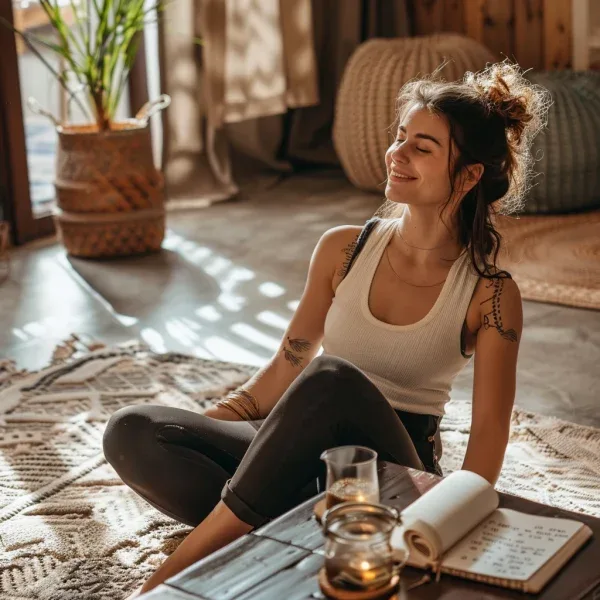by Sofia Moreau

Evidently, the disquiet of recent times has left many of us laden with anxiety. If you’re finding it hard to keep your worries under control, you’re not alone. Everyday tensions are peaking up, with crowds, unhealthy snacks, increased alcohol consumption, monetary issues, and work/family circumstances all contributing to the mix. The rollercoaster that is 2020 has, to some extent, impacted all of our lives, reflected in the palpable angst rumbling across the globe.
Anxiety isn’t just a temporary state of unease, it is a relentless wave that disturbs our mental and physical state. It might quietly eat away at us, creating an ongoing scenario of unease, or it might strike suddenly, like a lightning bolt, evoking hysterical panic attacks in response to specific thoughts or events. Symptoms such as hyperventilation, light-headedness, nausea, and rapid heartbeats often accompany these episodes.
Anxiety’s far-reaching effects can create a ripple effect on health and wellness. Besides the immediate unpleasant feelings, the broader implications are a cause for concern. Many, in an effort to evade triggers, avoid stepping out, increasingly isolating themselves, which can lead to loneliness, and eventually, depression. Coping mechanisms should focus on preserving self-esteem and self-confidence.
Exercise as a Powerful Ally
Exercise has proven to be a beneficial ally in the battle against anxiety. Concentrating on what we can regulate, including the frequency and intensity of physical activity, can have a significant impact in managing nerves. The chemicals released from our brain during exercise not only elevate mood but also decrease tension. These “happy chemicals” are known as endorphins and endocannabinoids which inculcate feelings of happiness, wellness, and calmness.
Engaging in sustained, high-intensity exercise like running or boxing can cause a large release of these mood-boosting chemicals. However, people dealing with anxiety might prefer calmer routines. Yoga, for instance, offers a meditative environment and can be conveniently done at home. Establishing an exercise goal is a great way to restore self-confidence destroyed in current circumstances and can help foster optimism about the future.
Exploring Natural Remedies
The use of familiar herbal supplements like valerian, kava, and passionflower extract for anxiety are still being studied and the full range of benefits and risks is unclear. Be conscious that these supplements can clash with medications or pre-existing health conditions, so consulting with a healthcare professional before use is advised.
Substances such as caffeine, alcohol, high-sugar foods, and nicotine heighten anxiety symptoms. Thus, cutting back or eliminating these from your diet could help. Reducing screen time and ensuring sufficient sleep can also aid in anxiety management. Maintain a good sleep routine, wind down before bed, and make your sleeping environment cool and serene for optimal sleep.
Next time anxiety engulfs you, remember not to deny your feelings. Instead, let them wash over you, looking for positive affirmations or past coping experiences. Once you start feeling better, hydrate, take a moment to rest, or try reaching out to someone.
Lastly, it’s worth recognizing that unfavorable thoughts are merely thoughts, not necessarily a reflection of reality. You’d be surprised what simply jotting down your thoughts and reasoning with them can do to change your perspective.
Stress management, Exercise for anxiety, Benefits of exercise, Herbal remedies for anxiety, Coping with anxiety, self-care during anxiety
Leave a Reply